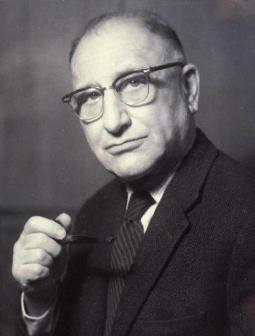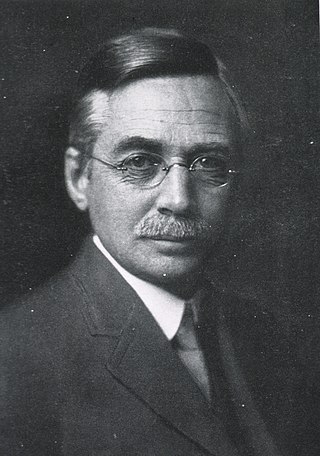
Forensic pathology is pathology that focuses on determining the cause of death by examining a corpse. A post mortem examination is performed by a medical examiner or forensic pathologist, usually during the investigation of criminal law cases and civil law cases in some jurisdictions. Coroners and medical examiners are also frequently asked to confirm the identity of remains.

Ernest William Goodpasture was an American pathologist and physician. Goodpasture advanced the scientific understanding of the pathogenesis of infectious diseases, parasitism, and a variety of rickettsial and viral infections. Together with colleagues at Vanderbilt University, he invented methods for growing viruses and rickettsiae in chicken embryos and fertilized chicken eggs. This enabled the development of vaccines against influenza, chicken pox, smallpox, yellow fever, typhus, Rocky mountain spotted fever, and other diseases. He also described Goodpasture syndrome.

The Johns Hopkins University School of Medicine (JHUSOM) is the medical school of Johns Hopkins University, a private research university in Baltimore, Maryland. Founded in 1893, the School of Medicine shares a campus with Johns Hopkins Hospital and Johns Hopkins Children's Center, established in 1889.

The University of Alabama at Birmingham Marnix E. Heersink School of Medicine is the medical school of the University of Alabama at Birmingham located in Birmingham, Alabama, United States with branch campuses in Huntsville, Montgomery, and Tuscaloosa. Residency programs are also located in Selma, Huntsville, and Montgomery. It is part of the University of Alabama at Birmingham (UAB) Health System, one of the largest academic medical centers in the United States.
Robert James Gorlin was an American oral pathologist, human geneticist and academic at the University of Minnesota School of Dentistry.
Kenneth Merle Brinkhous (1908–2000) was a professor and chairperson in the Department of Pathology and Laboratory Medicine at the University of North Carolina at Chapel Hill. Brinkhous remained active in research until shortly before his death.
Zeynel A. Karcioglu is a medical and surgical practitioner, researcher and medical educator. He is a diplomate of the American Board of Ophthalmology, specializing in Ophthalmic Oncology and Pathology particularly in areas of retinoblastoma, external eye tumors, and primary and metastatic orbital neoplasms. Karcioglu is also residency and fellowship trained in Anatomic Pathology and Neuropathology and certified by the American Board of Pathology.
Vasant Ramji Khanolkar, better known as V. R. Khanolkar, was an Indian pathologist. He made major contributions to the epidemiology and understanding of cancer, blood groups, and leprosy. He has been called the "Father of Pathology and Medical Research in India."
Grover M. Hutchins (1933-2010) was an American professor of pathology at Johns Hopkins University School of Medicine in Baltimore, Maryland, for more than 30 years, including 22 years as director of autopsy services. He was a world-renowned expert in the fields of cardiac and pediatric pathology.

Hans Popper was an Austrian-born pathologist, hepatologist and teacher. Together with Dame Sheila Sherlock, he is widely regarded as the founding father of hepatology. He is the namesake of the Hans Popper Hepatopathology Society, as well as the International Hans Popper Award and the Hans Popper Hepatopathology Society.

Louisiana State University Health Sciences Center Shreveport is a public university focused on the health sciences and located in Shreveport, Louisiana. It is part of the LSU System and is composed of three different schools: the School of Medicine, School of Graduate Studies, and School of Allied Health Professions. The School of Medicine offers the Doctor of Medicine degree, while both the Schools of Graduate Studies and Allied Health offer Bachelor's degrees, Master's degrees, and Doctorate degrees. The Ochsner-LSU Health Hospital also offers 18 residency programs and 15 fellowships.

James C. Hogg is a Canadian physician and pulmonary pathologist. Hogg has been recognized for his research into Chronic Obstructive Pulmonary Disease. He received the Canada Gairdner Wightman Award in 2013. He became an officer of the Order of Canada in 2005 and was named to the Canadian Medical Hall of Fame in 2010. He also received the Queen Elizabeth II’s Diamond Jubilee Medal.
Allan Douglas Kirk, FACS, is chairman of the department of surgery in the Duke University School of Medicine and surgeon-in-chief for Duke University Health System. He is the David C. Sabiston Jr. Professor of Surgery and a professor of immunology and pediatrics. He served as editor-in-chief for the American Journal of Transplantation from 2010 through 2020, and is now Editor Emeritus.
Gerald Sanders Berenson was an American cardiologist, heart researcher, and public health specialist who specialized in researching the causes of heart diseases. Berenson's fundamental research revealed that adult heart disease arises from practices and behaviors that begin in childhood. He also discovered that atherosclerosis was significantly more pronounced in individuals who had three or four cardiovascular risk factors compared to those who had none.
Gary Epler is an Associate Professor of Medicine at Harvard Medical School, author, and speaker.

Ludvig Hektoen was an American pathologist known for his work in the fields of pathology, microbiology and immunology. Hektoen was appointed to the National Academy of Sciences in 1918, and served as president of many professional societies, including the American Association of Immunologists in 1927 and the American Society for Microbiology in 1929. He was the founding editor of the Archives of Pathology and Laboratory Medicine in 1926 and edited several other medical journals. He was knighted to the Order of St. Olav in 1929, and in 1933, he became professor emeritus of pathology at the University of Chicago. The Hektoen Institute for Medical Research—formerly the John McCormick Institute of Infectious Diseases—now bears his name.
Valerie A. Fitzhugh is an American pathologist and Associate Professor of Pathology, Immunology, and Laboratory Medicine at Rutgers New Jersey Medical School as well as an Associate Professor of Pathology and Laboratory Medicine at Rutgers Robert Wood Johnson Medical School. She is the Chair of the Department of Pathology, Immunology, and Laboratory Medicine at Rutgers and the Chair at Rutgers Robert Wood Johnson Medical School as well. Fitzhugh specializes in bone and soft tissue pathology and cytopathology and has made the Pathology Power List by The Pathologist Magazine in 2016, 2018, and 2019. She is involved in educating pathology residents and she actively uses social media as a platform for education and for improving diversity in pathology and she also studies how effective social media is at enhancing accurate communication of science and medicine.
Jon Christopher Aster is an American pathologist who researches the role of the notch signaling pathway in leukemia. He is the Michael Gimbrone Professor of Pathology at Harvard Medical School. He has been a co-editor of the Annual Review of Pathology: Mechanisms of Disease since 2016.
Ligia Peralta is a Dominican-born doctor of pediatrics and adolescent medicine in Maryland. Her research focuses on HIV and the transmission of HIV in adolescents, specifically those from under-served communities.
Emmanuel Farber was a Canadian-American physician, pathologist, biochemist, and oncologist. He is known for his research on the biochemistry of carcinogenesis.







